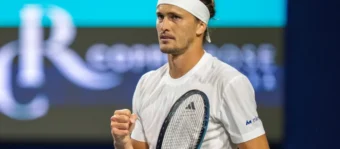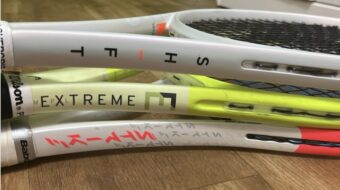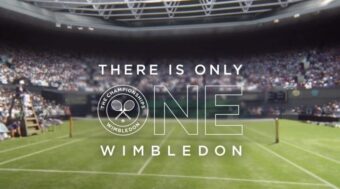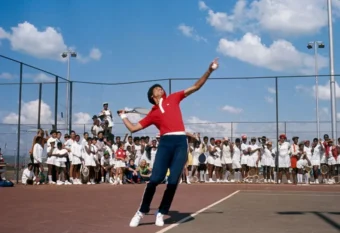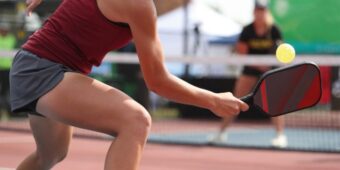Why does Pickleball Germany excite people more than Tennis and Padel combined
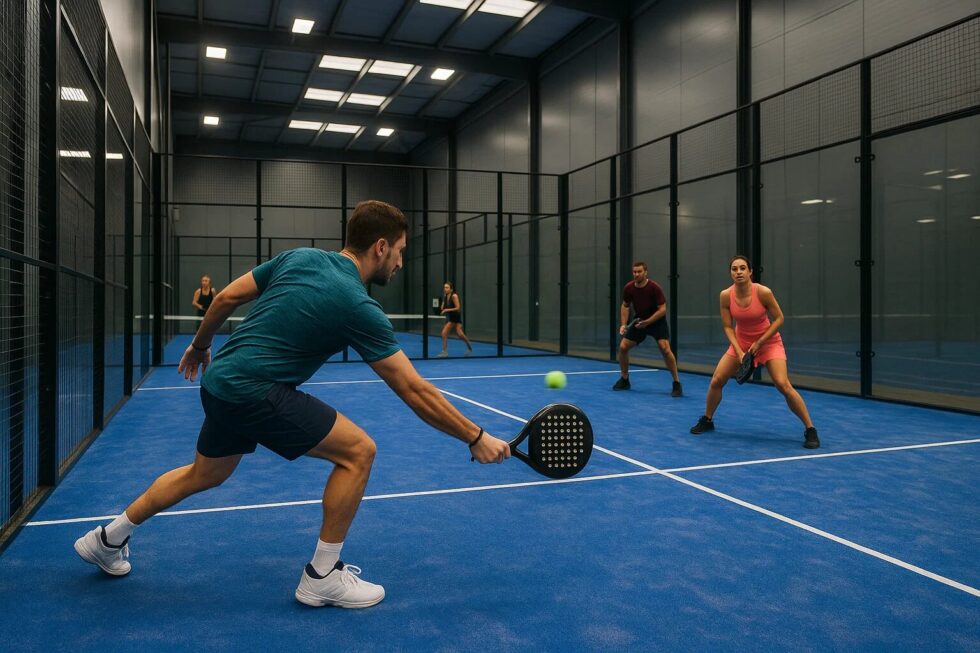
Pickleball Germany — a sport that once sounded like a quirky blend of tennis and ping-pong — is now the fastest-growing recreational trend across the country. From Berlin’s startup districts to Munich’s fitness clubs, pickleball courts are filling faster than those for tennis or padel. The blend of accessibility, social energy, and minimal equipment has made it irresistible for both beginners and former tennis players seeking something new. Market analysts report that participation in pickleball has surged by over 400% since 2023, and the number of clubs offering the sport has doubled within a year. Gyms like Urban Sports Club and Fitness First have started integrating pickleball courts into their premium memberships, while local governments explore new investments in multi-use sports facilities. As Germany’s population continues to age yet remains active, pickleball provides an ideal mix of light intensity and fun competitiveness. It’s not just a game; it’s a cultural shift, marking how wellness, social life, and sport now intersect — notes G.business.
The rise of Pickleball Germany: how it started and why it matters
Pickleball was invented in the United States in 1965 but arrived in Germany quietly — mainly through American expats and returning travelers. Its major breakthrough came only in 2022, when influencers and sport brands began promoting it as a “democratic alternative” to tennis. Within two years, more than 150 official courts appeared in major cities such as Hamburg, Frankfurt, and Cologne. The Deutscher Pickleball Bund (DPB) reports that nearly 40,000 players are now active across Germany, compared to just 5,000 before the pandemic. Fitness centers embraced it because pickleball requires less space and lower maintenance than tennis or padel courts, while offering high social engagement and easy learning curves. Equipment is also inexpensive: a standard paddle costs €40–60, while professional rackets like JOOLA Ben Johns or Head Radical Elite range up to €120.
Top German cities leading in pickleball expansion:
| City | Estimated number of courts (2025) | Popular venues |
|---|---|---|
| Berlin | 48 | Tempelhofer Feld, Fit One Neukölln |
| Munich | 35 | ASV München, SportScheck Allwetteranlage |
| Frankfurt | 22 | Padelcity Eschborn, PrimeTime Fitness Main Tower |
| Hamburg | 18 | Altona Sportpark, Kaifu Lodge |
| Cologne | 16 | PadelBox Ehrenfeld, P21 Club |
Why Germans prefer pickleball over tennis and padel
While tennis still holds prestige, it demands high technical skills and long matches. Padel, though dynamic, often requires costly indoor courts and fixed groups. Pickleball, by contrast, offers instant gratification — matches last 10–15 minutes, the rules are intuitive, and anyone can start playing within minutes. Experts at Sporthochschule Köln highlight that pickleball’s smaller court size (13.4 x 6.1 meters) encourages rapid exchanges without the physical stress typical of tennis. The lightweight paddles reduce injury risks, making it popular among 40+ professionals seeking balance and fitness without overexertion. Moreover, brands like Decathlon and Intersport now sell complete pickleball starter sets under €100, helping the sport penetrate mass markets quickly.
Key reasons for the growing preference:
- Ease of entry: Rules are simple and games are short.
- Accessibility: Indoor and outdoor options across all regions.
- Low cost: Minimal investment compared to tennis gear.
- Community feel: Mixes fitness with social networking.
- Inclusive age range: Popular among all generations.
Market boom: from niche to mainstream
Between 2023 and 2025, the European pickleball market grew by 220%, with Germany becoming the second-largest hub after the UK. Retailers such as Amazon.de and Keller Sports report triple-digit sales growth in paddles, balls, and shoes. Sport associations foresee that by 2026, pickleball will be part of school sports curricula in several German states, following pilot programs in Bavaria and North Rhine-Westphalia. Private investors, particularly in urban areas, are converting unused tennis courts into hybrid pickleball-padel spaces. Even the hospitality sector has joined: hotels like Lindner and Marriott now include “social courts” for guests. Analysts from Statista estimate the domestic pickleball market could surpass €50 million in annual value by 2027.
Leading pickleball brands in Germany:
| Brand | Origin | Price Range (€) | Specialty |
|---|---|---|---|
| JOOLA | Germany | 60–140 | High-end paddles |
| Selkirk | USA | 80–180 | Pro performance gear |
| Franklin Sports | USA | 40–100 | Recreational sets |
| Head | Austria | 70–130 | Hybrid rackets |
| Decathlon | France | 30–80 | Affordable beginner sets |
How clubs and cities embrace the trend
Municipalities and private clubs are racing to build courts as interest soars. In Berlin, Sportamt Friedrichshain-Kreuzberg approved €250,000 in funding for new pickleball courts at public parks. Meanwhile, in Frankfurt, PrimeTime Fitness added three rooftop courts overlooking the Main Tower skyline — all fully booked within a week of opening. Local tennis federations, initially skeptical, are now integrating pickleball sessions into off-season training to retain members. The German Tennis Federation (DTB) estimates that nearly 12% of its recreational players have switched partly or fully to pickleball since 2024. This diversification reflects a broader lifestyle shift where people value fun, flexibility, and social connection more than competition.
Most active clubs introducing pickleball sessions:
- ASV München – first to host weekly corporate leagues
- Tennisclub Blau-Weiss Berlin – added indoor pickleball tournaments
- Frankfurt Racket Center – offers mixed doubles events
- PadelBox Cologne – integrated hybrid training programs

Economic potential and media attention
Pickleball is now more than a hobby — it’s a media and business phenomenon. German broadcasters like ZDF Sportreportage and Sky Sport News have featured it as a “movement of modern urban sport.” Advertising agencies are eyeing sponsorship deals targeting health-conscious professionals aged 30–55. The industry’s growth opens new opportunities for sports tourism and branded events, similar to marathons and golf tournaments. Already, the first German Pickleball Open in Munich (August 2025) drew over 2,000 participants and sponsorship from Adidas, FitLine, and Lufthansa. The event’s media reach exceeded 3 million views on social platforms, demonstrating its marketing power and future scalability.
Emerging revenue channels in the pickleball industry:
- Equipment manufacturing and imports
- Sportswear collaborations
- Corporate team-building events
- Streaming and e-sports formats
- Wellness travel and fitness retreats
Future outlook: from a trend to a national sport
Experts predict that pickleball could become Germany’s next “Volksport” — a people’s game. The Bundesinstitut für Sportwissenschaft has already launched a study examining its effects on coordination, heart rate, and social well-being. Health insurers like TK and Barmer include pickleball in preventive fitness programs, offering partial reimbursements for club memberships. Tech startups in Munich are developing smart sensors for paddles to analyze performance in real time. The sport’s mix of community, technology, and accessibility mirrors how Germans now redefine active living in cities. Whether in a luxury fitness club or a suburban schoolyard, pickleball’s friendly rhythm seems here to stay — reshaping how Germany moves, connects, and plays.
Pickleball as a social phenomenon in modern Germany
Pickleball Germany isn’t just a sport — it’s a new social connector for people who once met in coworking spaces or yoga studios. According to Statista, over 60% of new pickleball players in Germany discovered the sport through friends, dating apps, or after-work networking groups. What attracts them most is the informal atmosphere: you don’t need a partner, club membership, or prior experience to join a match. The relaxed format and quick pace create a shared sense of belonging that tennis rarely achieves. Urban professionals say pickleball feels like a mix between sport and social therapy — a way to release stress after work while meeting like-minded people. In Berlin, communities such as Berlin Pickleball Club and Social Rackets already host Friday night sessions with DJs and food trucks.
Most popular community formats in Germany:
- After-Work Pickleball — casual games from 6–9 PM with social drinks
- Corporate Leagues — monthly intercompany tournaments (SAP, Lufthansa, Zalando)
- Singles Sundays — co-ed games organized through Meetup or Bumble For Friends
- Family Play Days — parent-child sessions promoted by local sports schools
Pickleball and the new generation: Gen Z chooses movement over medals
For younger Germans, pickleball symbolizes independence from traditional sport hierarchies. Instead of joining expensive tennis clubs, they prefer spontaneous outdoor matches organized via WhatsApp or Discord groups. TikTok has accelerated the trend: under the hashtag #PickleballGermany, videos reached over 30 million views in 2025 alone. Influencers like Anni Fittko and Fabian Weigand demonstrate trick shots and hybrid drills that blend padel and pickleball moves. Schools and universities follow suit: Humboldt University Berlin and TU Munich now offer pickleball as part of their fitness curriculum. Teachers report higher participation compared to volleyball or badminton. The sport’s simplicity, humor, and shared joy appeal to a generation that values community over competition.
Why Gen Z embraces pickleball:
- Short matches fit their attention span and schedules.
- It’s photogenic — perfect for Reels and Stories.
- Equipment is affordable and gender-neutral.
- Games are inclusive: players of all levels mix easily.
- Venues double as social spaces with music and street food.
Women in pickleball: empowerment through sport
Pickleball’s rise in Germany coincides with a growing women’s movement in sports entrepreneurship. Over 45% of active players are women, many discovering the sport after leaving tennis due to time pressure or injuries. Female-led startups like Pinkleball (Berlin) and RacketRebels (Hamburg) create stylish gear, eco paddles, and fashion lines designed for urban women. Meanwhile, brands like Lululemon and Nike have launched limited “Pickle City” collections featuring German cities. At community level, female coaches such as Christina Bluhm are organizing “Ladies First Leagues,” emphasizing confidence and fitness rather than ranking. The narrative of empowerment and inclusivity echoes what yoga achieved in the 2000s — but with more laughter and sweat.
Top women-led pickleball startups to watch:
| Brand | City | Concept | Funding (2025) |
|---|---|---|---|
| Pinkleball | Berlin | Sustainable paddles & apparel | €400K seed |
| RacketRebels | Hamburg | Streetwear x racket culture | €250K |
| Spin & Flow | Munich | Women’s tournaments & retreats | €120K |
Infrastructure and future leagues: can Germany catch up with the US?
In the US, pickleball already boasts professional leagues, prize pools, and celebrity investors like LeBron James and Kim Clijsters. Germany is moving in that direction. The German Pickleball Federation (DPB) is developing a structured league system with regional tournaments starting in 2026. Talks are underway with broadcasters such as Sport1 to air the finals. Local clubs, however, face infrastructure challenges: Germany has fewer than 500 dedicated courts, compared to over 40,000 in the United States. To bridge the gap, municipalities are repurposing underused basketball and handball halls. Manufacturers like Gerflor and Sport Court Europe now produce modular pickleball floors that can be installed in one day.
Planned expansions 2025–2027:
| Region | New courts planned | Main sponsors |
|---|---|---|
| Bavaria | 120 | SportScheck, FitX |
| Hesse | 80 | Lotto Hessen, PrimeTime Fitness |
| Berlin-Brandenburg | 100 | Decathlon, Senat Berlin |
| NRW | 90 | Racket Pro GmbH, ASICS |
Pickleball for business: investment, tourism, and media potential
Pickleball’s boom is a signal for German entrepreneurs and investors. Resorts like Aldiana and Robinson Club are adding pickleball vacations to their wellness programs, while cruise lines such as AIDA install rooftop courts to attract active travelers. Agencies like Eventure Sports now organize corporate pickleball tournaments as part of team-building events. Sponsorship value is also growing: according to PwC Sport Outlook 2025, brand exposure per tournament exceeds €250,000, with room for expansion through streaming and influencer partnerships. Pickleball’s hybrid identity — half sport, half lifestyle — makes it ideal for cross-sector collaborations, from food brands to fintech.
Examples of business opportunities linked to pickleball:
- Franchise gyms: add pickleball zones to increase retention
- Hotels & resorts: package “play & stay” weekends
- Sport retailers: localize gear and apparel production
- Media companies: create branded podcasts and tournaments
- Startups: develop tracking wearables and app communities
Health benefits and sustainability: why doctors recommend it
Medical associations note that pickleball combines aerobic exercise, agility, and hand-eye coordination with minimal joint stress. Unlike tennis, it doesn’t require powerful serves or sprints, reducing knee and shoulder injuries. Cardiologists from Charité Berlin report that playing three times a week can lower cholesterol and improve heart rate variability by up to 15% within two months. In wellness resorts, it’s marketed as a longevity sport — similar to Nordic walking, but with more excitement. Sustainability is also a key factor: German brands now produce paddles from recycled carbon fiber and cork. Eco courts made of biodegradable rubber are being tested in Freiburg and Hanover.
Average cost per player in Germany (2025):
| Item | Average price (€) | Notes |
|---|---|---|
| Beginner paddle | 50 | Entry level |
| Professional paddle | 120 | JOOLA, Selkirk |
| Ball set (6 pcs) | 12 | Outdoor & indoor |
| Court rental (1h) | 18–25 | Urban average |
| Annual club membership | 90–150 | Varies by city |
From trend to culture: the lifestyle behind pickleball
Pickleball Germany reflects broader cultural changes: people crave shared experiences, hybrid identities, and lighthearted competition. Cafés near courts now serve “matcha & pickle” menus, and Berlin hosts Pickle & Vinyl Nights where players spin records after games. Design brands like Vitra have even used pickleball imagery in their 2025 lifestyle catalogs. The sport has become a metaphor for the modern German balance: ambition without aggression, fitness without obsession, competition without exclusion. When asked why they play, most participants don’t mention winning — they mention joy.
Stay connected for news that works — timely, factual, and free from opinion — and insights that matter now: Where to find free skateparks and pumptracks in Berlin, Frankfurt and Munich
